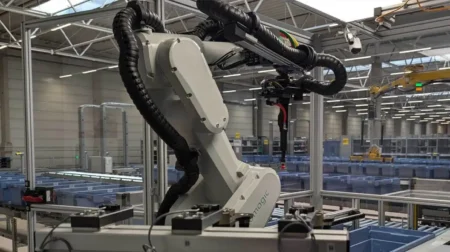Robotic lab automation firm Automata has found that senior NHS lab teams view robotic automation as an opportunity to meet increasing diagnostic demands and improve turnaround time for patients.
The research highlights that senior lab scientists view acceleration in automation as key to the future, and can relieve existing pressures, improve day-to-day capacity and turnaround time, reduce human error and ultimately enhance patient outcomes.
According to the survey, 95% of lab technicians are concerned about staff shortages in their own labs, with 65% worried about human error and 48% about the replication of results.
Automata said its research underscores the benefit automation offers for increased time to pursue greater innovation. From those surveyed 97% of lab managers associated automation with time savings – be that single-station, full-workflow, or both forms.
The research also highlights the excitement among lab managers that automation can relieve existing pressures, scale up capacity and allow them to enjoy greater creative freedom in their work.
The majority of lab managers feel that full-workflow automation would have a positive impact on their day-to-day work, for example in improving capacity (93%) and turnaround time (90%). Full workflow automation was also felt to have a positive impact on human error (85%), lab safety (80%) and patient outcomes (68%).
Mostafa ElSayed, Automata’s CEO and co-founder, said: “Our research highlights the significant and sustained pressures faced by UK lab managers, many of whom carry out work for the NHS, and in pathology and diagnostic labs.
“It is concerning that respondents so unanimously feel concerns over staff shortages, time pressures and meeting current demands are experienced acutely across the sector, and in their day-to-day work.
“Automata wants to help scientists achieve better results faster with worry-free lab automation that empowers lab managers to achieve more reliable results, save time and enable them to enjoy greater freedom for creativity and innovation.
“So, it is reassuring, our research shows lab managers have confidence in automation as a viable and credible solution, to both relieve current pressures, and improve capacity, speed, safety and patient outcomes.”








